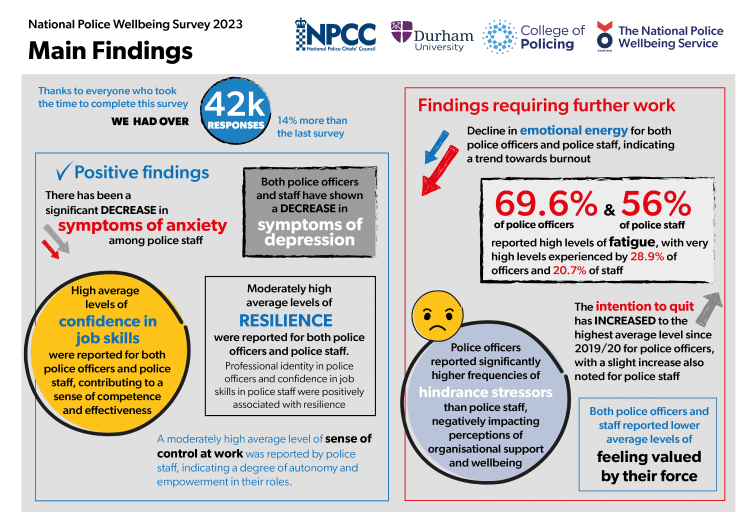
Results from the recent national police wellbeing survey have firmly established wellbeing to be a major issue across the police workforce, which comes as no surprise to Cambridgeshire Police Federation chair Liz Groom.
Research findings of the fourth annual national police wellbeing survey, which has been developed by the National Police Wellbeing Service, Oscar Kilo and Durham University acknowledges the high levels of motivation that members of the policing workforce have to serve the public, despite their sense of being valued declining.
Workloads are high and, while results reveal cops find their work meaningful, the intention to quit has increased to the highest average level since 2019/20 for police officers.
Reflecting on the results, Liz said: “I understand the need to have a broad, national view – firm evidence to initiate change but the contents of this report come as no surprise.
“The fact that colleagues are thinking of leaving a vocation they once loved is devastating.
“Alarm bells have been ringing for a long time and inadequate levels of support have long let people down. It’s testimony to the commitment and pride to public service that my colleagues still feel a deep sense of duty.”
Other findings include high levels of burnout, with 69 per cent of police officers reporting high levels of fatigue.
Officers reported anxiety, not being able to recover from stressful incidents, the negative impact of working shifts, difficulty recovering from high work demands through impaired rest days and poor-quality sleep, and difficulty ‘switching off’ outside of working hours.
Liz continued: “Policing is physically and emotionally demanding. No one should have to endure such relentless pressure without adequate care and support.
“Our members deserve their wellbeing to be taken seriously before the service completely implodes.”
The summary of research findings will be used to evidence the development of the work of the National Police Wellbeing Service and College of Policing.
In addition, there is an expectation that forces will also address the key themes locally and pick this up with their staff associations as they continue to develop their local wellbeing officer.
For the full results visit the Oscar Kilo website.
